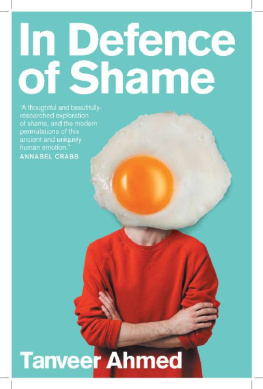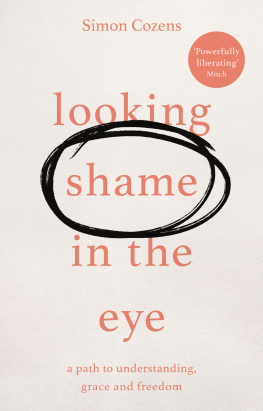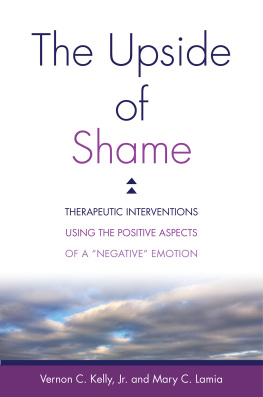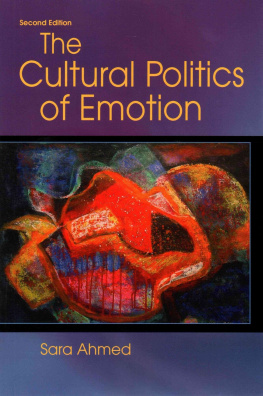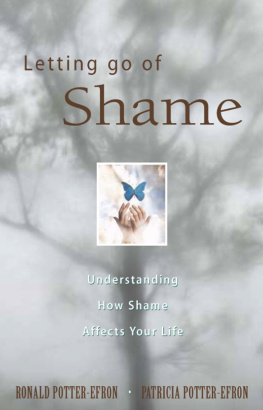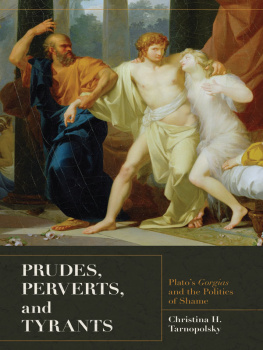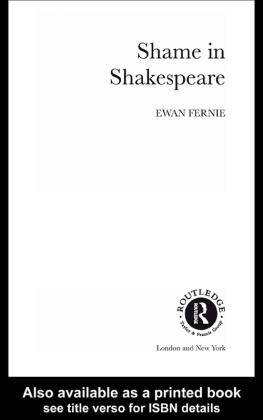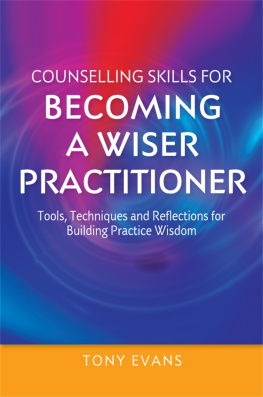IN DEFENCE OF SHAME
IN DEFENCE OF SHAME
Tanveer Ahmed
Connor Court Publishing
A thoughtful and beautifully-researched exploration of shame, and the modern permutations of this ancient and uniquely human emotion.
Fascinating. Ahmed brings clinical expertise and a journalists curiosity to this eminently readable exploration of shame, and its surprising contemporary uses.
Annabel Crabb ABC broadcaster and author
Fixing community is intertwined with mending ourselves. Blendingvignettes from his patients with insights from social science, TanveerAhmed dives deep into the emotions of shame, anxiety and howthey affect the ties that bind society together. A riveting read.Andrew Leigh, ALP Shadow Finance Minister
Tanveer Ahmeds writing brings together a remarkable breadth of cultural history grounded with concrete, real-life insights from
his work as a psychiatrist. He is able to blend the abstract world
of ideas with stories from the lives of people who are diverse on
all measures: cultural background, gender, age, religion, and class. The result is a rich tapestry of insight into the contemporary human experience.
Claire Lehmann, Founding Editor Quillette
This book succeeds in engaging with some of the most deeply entrenched problems facing society from a perspective that
brings together the insights of psychology and cultural analysis.
It provides a remarkably astute analysis of the relation between
anxiety and shame and a compelling account of the real meaning of self-harm.
Frank Furedi, Professor of Sociology, University of Kent
Connor Court Publishing Pty Ltd
Copyright Tanveer Ahmed 2020
ALL RIGHTS RESERVED. This book contains material protected under International and Federal Copyright Laws and Treaties. Any unauthorised reprint or use of this material is prohibited. No part of this book may be reproduced or transmitted in any form or by any means, electronic or mechanical, including photocopying, recording, or by any information storage and retrieval system without express written permission from the publisher.
PO Box 7257
Redland Bay QLD 4165sales@connorcourt.comwww.connorcourt.com
ISBN: 9781925826876
Cover design by Josh Durham
Printed in Australia
This book is dedicated to my daughters, Katarina and Saskia, who, I hope, will continue to read books, even as their smartphones perpetually conspire against it.
ABOUT THE AUTHOR
Tanveer Ahmed is a psychiatrist and columnist for the Australian Financial Review. His past books are The Exotic Rissole and Fragile Nation. He lives in Sydney with his wife and two daughters.
CONTENTS
You can find shame in every house, burning in an ashtray, hanging framed upon a wall, covering a bed. But nobody notices it any more.
Salman RushdieINTRODUCTION
I
n my ancestral language of Bengali the word shame is called Lajja. The immediate implication of the term is one ofhiding. The term was made famous in a 1993 book, titled Lajja, by a Bangladeshi physician Taslima Nasrin. She wrote of atrocities by Muslim extremists against Hindus in Bengali villages, especially in relation to the demolition of the Babri mosque in India. There was a special focus on male violence and exclusion towards women. For her efforts she received a fatwa and multiple death threats. The book was banned, but later sold fifty thousand copies in the first six months alone. Nasrin fled the country and has lived in exile in Europe ever since. The book sold widely overseas and was translated into many languages.
I came across the title of her book while visiting Bangladesh as a medical student in the late 1990s, a few years after the books publication. Nasrin had just fled the country and was a hot topic ofdiscussion. Despite being born in Bangladesh, I had grown up in Australia since the age of six. I was careful not to wade into matters related to religion in a place like Bangladesh with very different sensitivities. But Nasrins themes regarding what she believed was Islams treatment of women were impossible to escape given part of my experience involved in visiting a shelter for victims of acid violence attacks.
I knew of such cases and had even met some victims during return visits to my parents villages. But nothing prepared me for the collection of scarred, charred faces and stories of horrific abuse at the newly formed facility aimed at acid attack survivors. Some of the girls were barely teenagers. All were victims of wounded male honour, usually after rejecting advances, not producing adequate dowry or taking part in what were deemed to be inappropriate interactions with other men. The vast majority were from extremely poor backgrounds children of beggars, maidservants or rickshaw drivers. Rarely was there someone from a middle class family, but they were usually desperate not to be identified. I was already familiar with honour killings, another example of extreme collectivism where a womans actions were judged an insult to men and in turn the wider familys standing, but I had never seen such vivid examples of the cost of living amid a moral axis of shame and honour.
I was born in the city of Dhaka to well educated parents who were from poor, rural families. While I have little memory of it, we lived in a single room for my initial years before we migrated to Australia. Our dwelling was part of a large housing estate. I remember being ensconced in a collective from early in life, having a wide circle of friends and family always present, jostling for attention and resources.
A deeply traditional and religious society, there was no focus on building autonomy and independence in children. Attachment parenting was the norm. Physical punishment to regulate behaviour was expected. I endured many a beating without considering it unusual. Shame first became a notion in relation to the physical body, either to do with toilet training or clothing ones genitals. A typical shaming ritual was to be ordered to hold ones ear and perform multiple squats in front of a parent. I was amused recently when on BBC news I watched Indian police commanding locals in Delhi to perform the same ritual for not adequately socially distancing.
Interdependence was far more valued than independence. This was at odds with the values of outside society which encouraged individualism, autonomy and freedom. I was somewhat lucky in that my parents were not religious, allowing some flexibility with regards to socialising more freely. But it was always clear that we were part of an ethnic community where gossip was a potent weapon, enforcing conformity. There were narrow confines with regards to career choices and marital partners.
I used to look down on the deep traditionalism of my background, highlighted further by some of my experiences while visiting facilities such as the acid violence hospital. It stifled innovation, creative thinking and aspiration more generally. At its worst it trampled on individual choice so severely that it resulted in ostracism or even death.
Over time I have come to value the forces of tradition and a degree of collectivism as a force for good. Such forces were critical in maintaining some of the integrity of family and community that was being torn asunder in other corners of Western societies, especially among the poor. I grew up in a rough part of western Sydney so this steady unpeeling of the solidarity of working class life was already apparent. Fatherlessness, drug addiction, criminality and broken families were rampant among many friends and neighbours. This was usually in contrast with the tight knit nature of most ethnic families.
Growing up amid a traditional ethnic community in the West allows for an especially good combination of the best features of both cultures, an insight into the appropriate mix of independence and interdependence. The right dose of shame is an ingredient in such a delicate balance.

